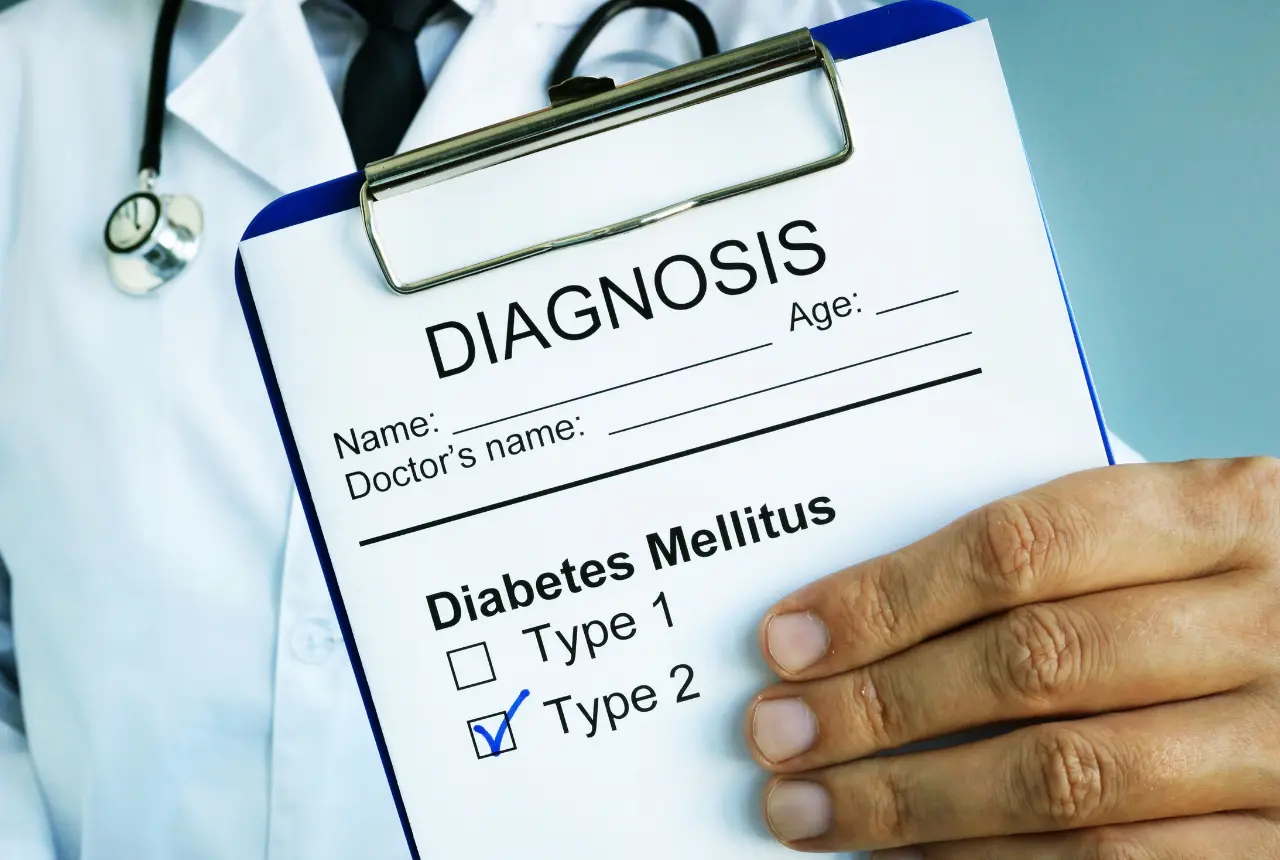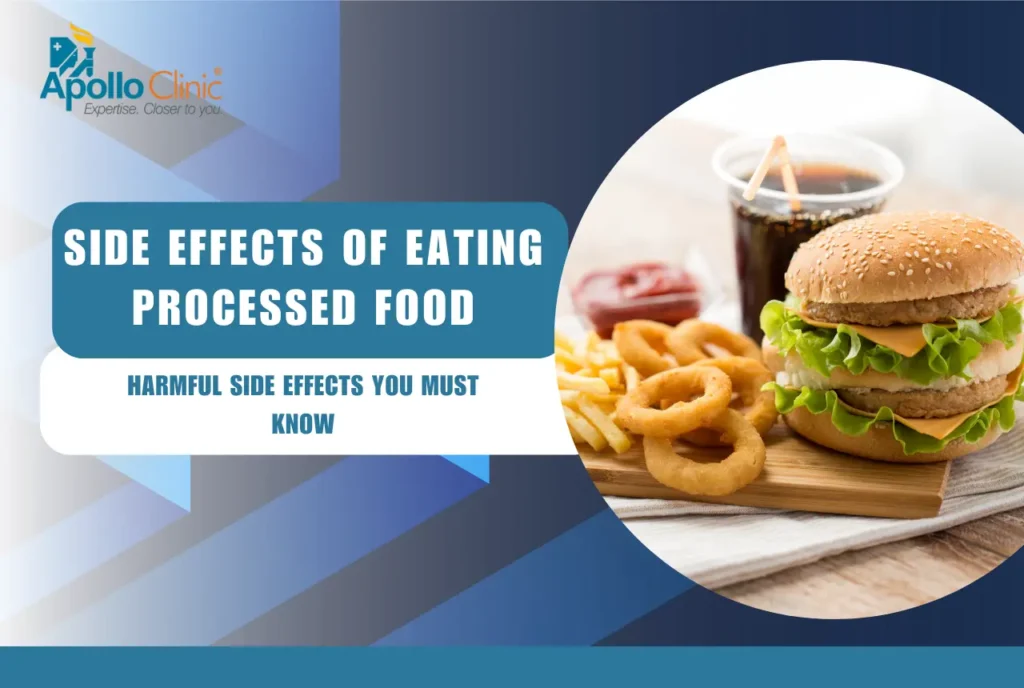7 Side Effects of Eating Processed Food You Should Absolutely Know About!
Are you aware of the side effects of eating processed food? Most people live in a world where convenience food is common, where grabbing a pack of potato chips or a microwave meal seems harmless. People do not really see that amidst the glamour and deceptive flavors of these products, most processed foods carry a dark secret that will wreak havoc on your health.
Sure, not all processed foods are bad, and many can be part of a healthy diet. But the processed foods are full of sugars, unhealthy fats, and artificial ingredients? That’s a different story altogether. These are not snacks you will grab between meals but rather primary contributors to a rise in obesity, heart disease, type 2 diabetes, and other chronic health issues now becoming alarmingly commonplace.
In fact, processing accounts for 25-60% of daily energy intake for many worldwide. So, what’s the cost of this new normal? Diving deep into the 6 major side effects of eating processed food and why it’s time to rethink what’s on your plate.
From heart disease to mental health, we will explain why those specific foods rank so low in comparison to whole foods, and cut back on them could be one of the best things you could do for your long-term health.
6 Major Side Effects of Eating Processed Food
1. Increased Risk of Heart Disease

Processed foods, especially with high levels of trans fats, sodium, and sugar, have been directly linked to heart disease. Such unhealthy ingredients increase cholesterol and blood pressure levels, becoming contributing factors for heart attacks and strokes.
In particular, trans fats, which are most commonly found in processed snacks, fried foods, and baked goods, are considerably bad. They trigger an inflammation that easily causes plaque to build up in your blood vessels, leading to cardiovascular complications.
Moreover, high sodium within processed foods accelerates high blood pressure and puts a strain on the heart. Eventually, chronic heart conditions result from a diet that is packed with processed foods. Therefore, focus should be placed on whole nutritious food to maintain a healthy heart, without processed foods.
2. Obesity and Weight Gain

Obesity is one of the most common epidemics around the world and most importantly, one primary cause is processed foods. In most cases, processed foods are full of calories but contain little vitamins, minerals, or essential nutrients.
They are often loaded with added sugars, unhealthy fats, and artificial additives that manage to cross over the signals in your body telling you it’s time to quit eating.
High-fructose corn syrup and artificial flavorings are added that enhance the desire for eating while it becomes difficult to stop eating even though one may feel full. This causes a high consumption resulting in weight gain, followed by obesity.
The danger of obesity is not just excess pounds but also increases the likelihood of developing further chronic diseases from type 2 diabetes, heart attack, and even cancer.
3. Increased Cancer Risk

Do you know how processed food intake raises the risk of cancer? Research studies have pointed out that diets rich in processed foods increase the risk of cancers associated with colorectal and breast cancers. The reason is that some of these processed foods contain chemical additives/preservatives, many of which are carcinogens.
With the nitrates found in bacon and sausages, these substances may be converted into carcinogens when metabolized by the body. More refined sugars and unhealthy fats present in packaged foods increase inflammation, which are cell-destroying agents and can result in cancerous tumors over time.
That is why health experts suggest the consumption of lesser amounts of processed meat and the intake of whole foods as often as possible so that one can minimize the risk of having cancer.
4. Type 2 Diabetes

If you are not aware these processed foods are mostly pure sugars and carbohydrates, which cause high peaks of your blood sugar level and insulin levels.
And if the intake of these processed foods becomes something the body receives often, it will ultimately result in developing insulin resistance leading to the path of type 2 diabetes. When the body gets resistant to insulin, it cannot regulate blood sugar levels well, and that eventually leads to a case of diabetes.
Type 2 diabetes is a clinical condition that often leads to complications like nerve damage, kidney disease, and heart conditions. The alarming rise in the cases of type 2 diabetes all over the world is attributed to the modern diet rich in processed foods and high in sugar.
Reducing the intake of processed foods and stressing instead on a balanced diet with whole grains, lean proteins, and healthy fats may help reduce such risk.
5. Mental Health Issues

It is not just the body that pays the price when one keeps eating processed foods., it impacts your mental health health as well. New research shows that there may very well be a direct linkage between processed food and the development of mental depression and anxiety. These foods tend to have very few essential nutrients such as omega-3 fatty acids, vitamins, and minerals that keep the brain at it best.
Some of the unhealthy fats, added sugars, and artificial ingredients present in many processed foods can be a cause of inflammation within the brain, which may affect the brain’s proper functioning.
Studies have clearly shown there is a strong link between people consuming diets rich in processed foods and symptoms of depression, anxiety, and sometimes even cognitive impairment. To further improve your own mental health, focus more on nutrient-dense whole foods instead of highly processed options.
6. Gut Health and Digestive Issues

Gut health is such a huge part of overall health, and these processed foods can be a catastrophe in digestive systems. In many processed foods, there are artificial additives, preservatives, and little bits of fiber that can throw the delicate balance of your gut microbiome completely off kilter. The point of a healthy gut microbiome is proper digestion, immune function, and even mental health.
Constant exposure to harmful elements used in processed food may cause you digestive problems such as bloating, constipation, and irritable bowel syndrome.
Eventually, poor gut health leads to chronic inflammation and might raise the risk factor for more severe diseases such as autoimmune disorders. Adopting a diet of whole, fiber-rich, and additive-free fruits, vegetables, and grains will help a healthy gut.
Conclusion
Processed foods are always tasty, but they bring with them a whole range of serious side effects that will affect health in the long run. Whether it’s cardiovascular disease, obesity, or simply mental health battles, from digestive issues to others, consuming these foods will have a big toll on overall health and well-being.
Being conscious of what you select means that you are more likely to consume whole, nutrient-rich foods while avoiding processed options, and that will reduce your risk of chronic diseases and make you live a better quality of life.
A few little changes may be the onset of a very big journey: maybe changing the number of meals prepared at home, or fresh produce you buy instead of packaged snacks. After all, investment in your health today will equal a healthier and happier tomorrow.


